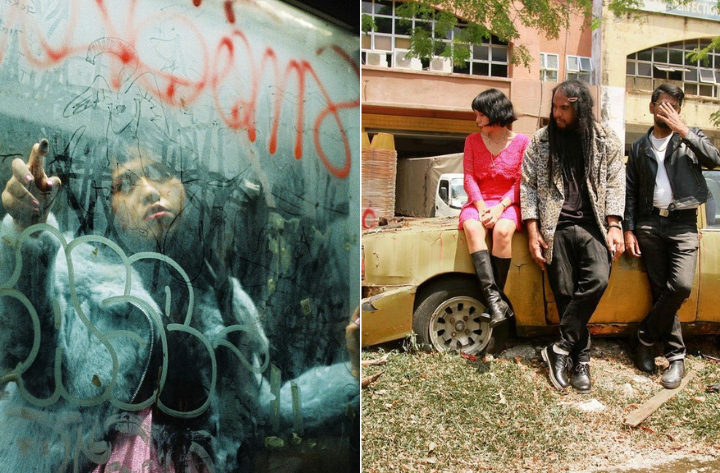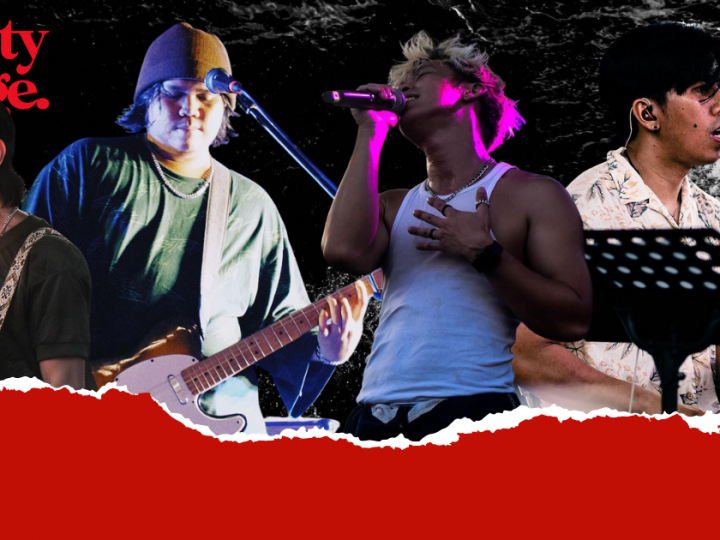Fact Or Opinion? We Hated Nickelback More Than They Deserved
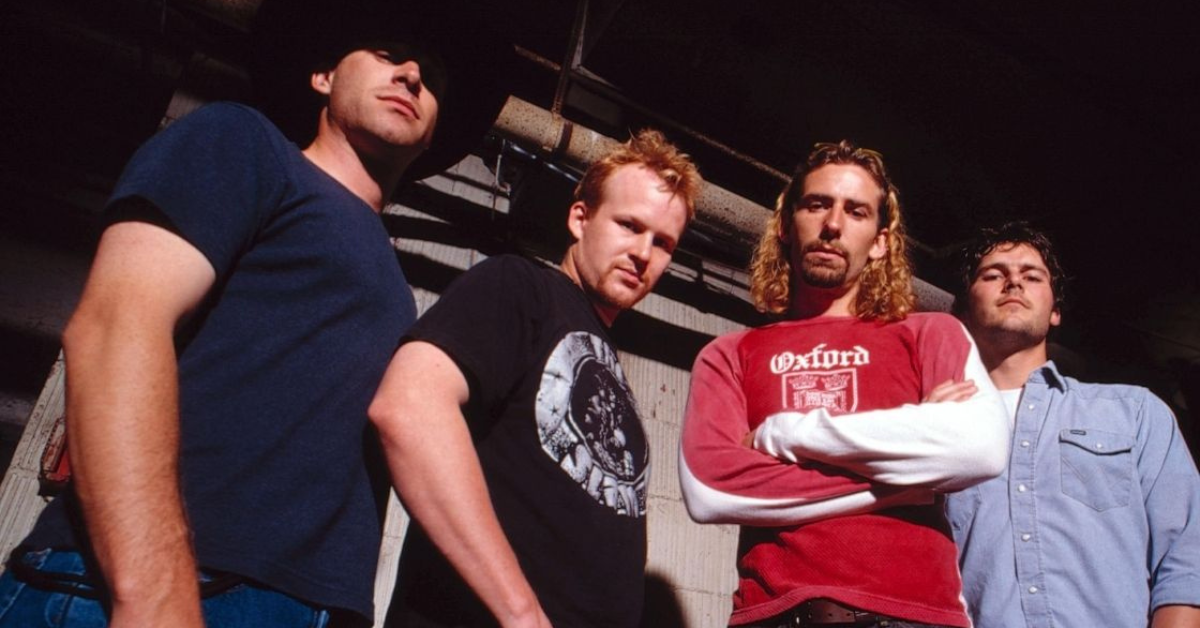 Thirsty for JUICE content? Quench your cravings on our Instagram, TikTok and WhatsApp
Thirsty for JUICE content? Quench your cravings on our Instagram, TikTok and WhatsApp

It’s the year 2001, and ‘How You Remind Me’ by Nickelback has made it onto radio stations across the world, blaring in every single living room and car commute. It cemented the Canadian band as a household name, whether you liked them or not.
So this begs the question…
Why does everyone hate Nickelback so much?
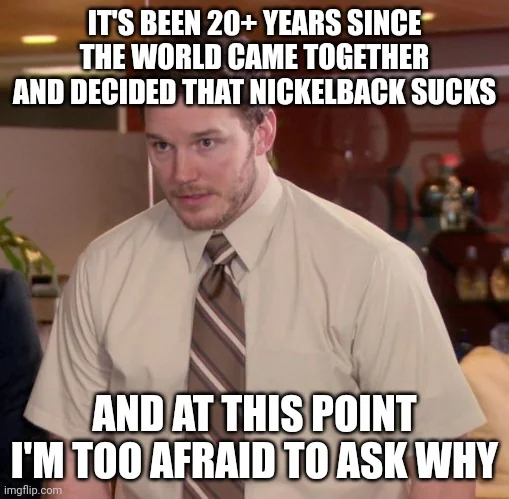
When looking at plain numbers, you wouldn’t think Nickelback was an objectively bad band.
With over 50 million albums sold worldwide, six Grammy Award nominations, 12 Juno Awards, six Billboard Music Awards, two American Music Awards, and one People’s Choice Award, they did pretty well for themselves at their peak. When the band was still new, uttering the words, “I like Nickelback” wasn’t met with much ridicule.
Gradually, however, it became an indicator of people with “punch-your-own-mother-bad” music taste. There were arguably worse acts (spanning multiple genres) at the time, but people rallied around the notion that Nickelback was the worst offender. Of course, much like religious movements and ideologies, every “this band is bad” remark has its origins too.
Where did the hate come from?
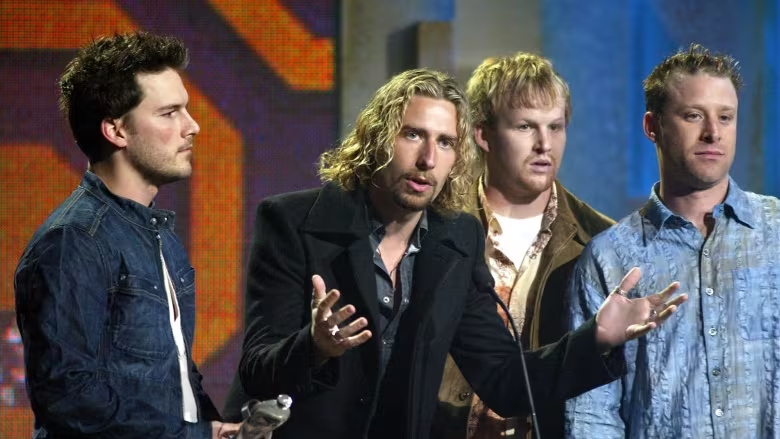
While there’s no definitive proof of the origins of all this Nickelback hatred, the earliest public mention of the band in a negative light came from U.S. comedian Brian Posehn, who appeared as a guest on Comedy Central’s Tough Crowd With Colin Quinn back in May 2003. Guests in this episode responded to a study that found a correlation between violent song lyrics and violent behaviour in kids.
Posehn then goes on to state, “No one talks about the studies that show that bad music makes people violent. Like, Nickelback makes me want to kill Nickelback.”
While it seemed like a harmless remark at the time, Posehn probably didn’t anticipate the effect it would have on the masses. For a long time, people justified their hatred for the Canadian band by referencing Posehn’s statement on a show which doesn’t even exist anymore. But after doing some digging, we can understand why Posehn held such disdain for Nickelback.
Constant reminders of ‘How You Remind Me’ at any given time
Just a year prior to Posehn’s appearance on Tough Crowd With Colin Quinn, Nickelback’s ‘How You Remind Me’ became the number one most played song on all formats in the U.S. in 2002, including radio. This also meant that for an entire year, there was almost always a Nickelback song playing on radio at ANY given time.
Hearing 🎼 This is how you remind me of what I really am 🎼 being played quite literally everywhere could probably constitute as psychological torture, especially if you were already tired of the song after the first run. The song’s commercial success had turned it into an unfortunate victim of overplay. We saw it with later acts like Justin Bieber and Ed Sheeran to name a few, and we still see this phenomenon today.
But it begs a few questions:
Is Nickelback’s music really that bad, or are we all victims of toxic herd mentality?

Music, in essence, is purely subjective.
A bop to you could sound like hot garbage to another person and vice versa. Every human hears things differently. Some people appreciate the uniformity of melodic verses while others prefer the surprise and intrigue of off-kilter lines. Many acts also use ‘formulas’ of chord and beat progressions, which tend to make different songs sound the same when you’re not really paying attention to them. This is also one of the most common arguments for why Nickelback sucks — their songs sound generic.
But quite literally everybody uses some kind of formula (the I–V–vi–IV progression). Why is it, then, that Nickelback gets the brunt of the abuse? One could say it’s just too easy to hate them, simply because everyone else does too. If you can specifically state why you hate them or why their music is especially bad compared to similar acts, then more power to you! But if you can’t, you’re probably conforming to a herd mentality.
Does going mainstream kill artists?
One could also argue that Nickelback made bad music because it pandered to misguided and “mainstream” expectations of Rock music at the time. They were corporate and commercial sell-outs designed to maximise dollars, so to speak.
A Finnish study published in the academic journal, Metal Music Studies (yes, that’s a real thing), found that initial reviews of Nickelback weren’t so bad. But as the band saw more fame and success, the worse their reviews grew. It’s titled, ‘Hypocritical bullshit performed through gritted teeth’: Authenticity discourses in Nickelback’s album reviews in Finnish media. You can read it here.
The study’s author, Salli Anttonen, says the issue at hand is the perception of authenticity. Rock critics like to think of themselves as “protectors of originality”, and they saw Nickelback as a bunch of sell-outs who violated sacred principles.
“They follow genre expectations too well, which is seen as empty imitation, but also not well enough, which is read as commercial tactics and as a lack of a stable and sincere identity,” says Anttonen.
Nickelback even licensed their song, ‘Rockstar’, for use in a furniture ad, which may have contributed to the ridicule they received.
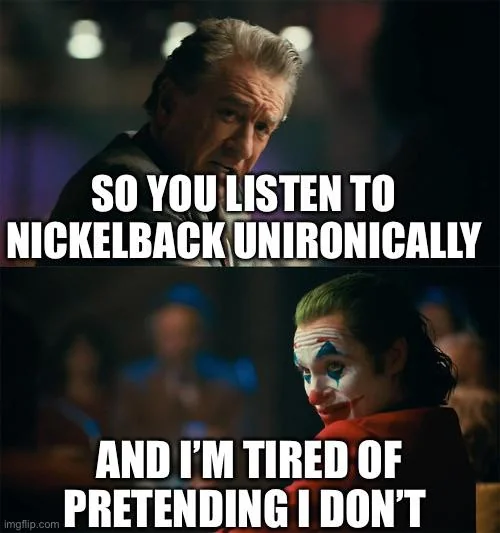
But this brings up a paradox.
When we look at indie acts, for example, people harp on about how their favourite artist or band is so “good” and so “underrated” that it’s become mainstream to love an indie act. We want them to see more success because they rightfully deserve it. One of the easiest ways to see that success is by going mainstream, is it not?
However, when indie artists finally get wider recognition and see tangible success globally, people tend to shift gears and call their once-favourite acts “sell-outs”. Why is going mainstream a bad thing for artists? What the hell do we actually want then, if not their success?
Something special, probably. Something or someone only you and a select few in your circle know about. But that’s selfish (and a little narcissistic), and many people fail to realise that.
So, what now?

We’ve explored the most common reasons people give for hating Nickelback so much. They’re valid to a certain extent, but it still doesn’t explain why the band gets the most extreme hate.
While Nickelback has suffered vitriol in the past, they’re also experiencing a resurgence of fame in the form of memes. Similar to Rick Astley’s ‘Never Gonna Give You Up’, Nickelback’s ‘Photograph’ has evolved from what was once a great song into a way to troll on the internet. And while that may not be the desired outcome for artists, it’s better than fading into non-existence.
As for the relentless critiques, why form such an impenetrable opinion on something you can’t back up properly?
Grass is not really green, water is not really blue, and Nickelback is not really bad.
Disclaimer: The opinions expressed in this article are of the author’s and do not represent the rest of the JUICE team, who hate Nickelback.


 Get Audio+
Get Audio+ Hot FM
Hot FM Kool 101
Kool 101 Eight FM
Eight FM Fly FM
Fly FM Molek FM
Molek FM